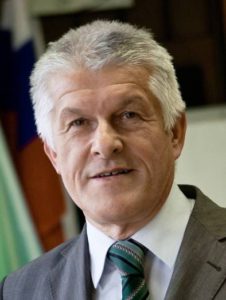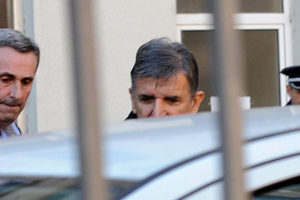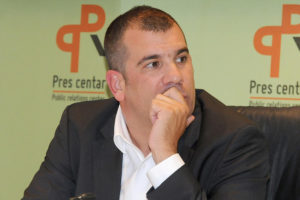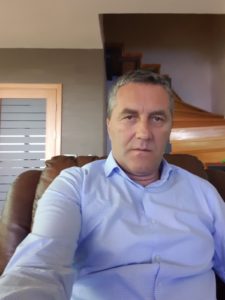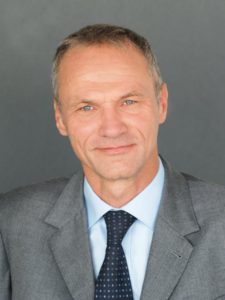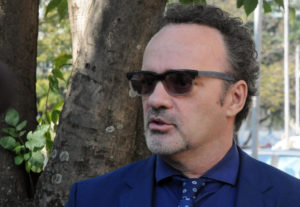TWO INTERNATIONAL ARBITRATIONS LOOM OVER WATER TREATMENT PLANT IN BUDVA AMIDST ACCUSATIONS OF POLLUTION AND CORRUPTION: Invoices inflated by millions while investigation takes forever
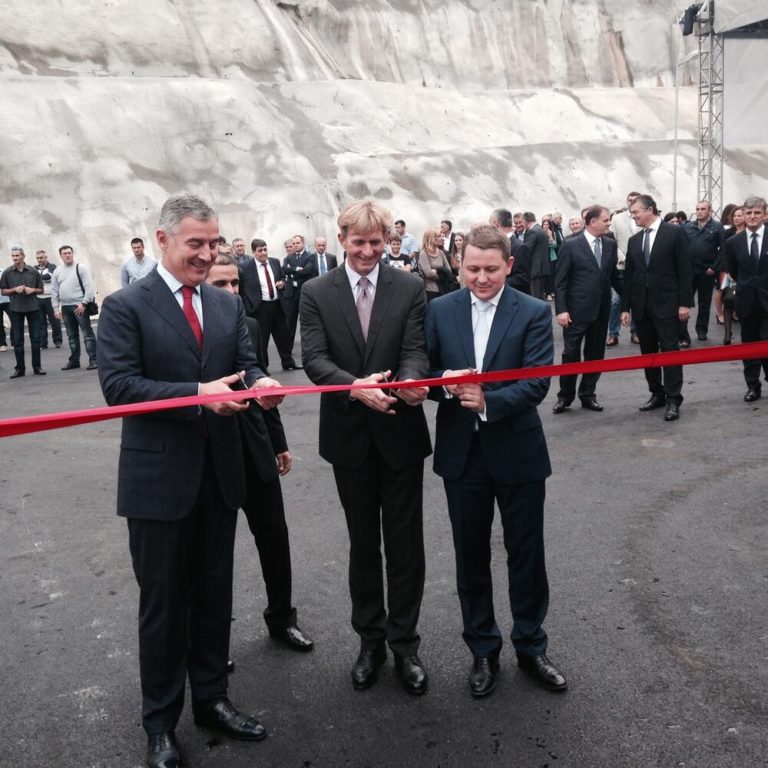
Numerous works were either fictive or overcharged, lower quality material was used in construction but invoiced as top quality and hence more expensive, experts claim. Wassertechnik Essen LLC has already pocketed around €42 million and requests another €35.34 million to be paid, which is vigorously contested by Budva Municipality. Furthermore, international arbitrations will cost Budva millions of euros. Special Prosecution Office has launched “inquiries” that drag on indefinitely
Invoices for the construction of a wastewater treatment plant in Becici are inflated by more than €20 million according to those involved in the project and the findings of two independent experts. The allegations are further corroborated by various documents that the Centre for Investigative Journalism in Montenegro (CIN-CG), Balkan Investigative Reporting Network (BIRN) and Monitor had access to.
Furthermore, Budva Municipality has not solved the key environmental problem as only the central part of the municipality is connected to the newly constructed plant. The sewage from the territory of Jaz, Petrovac and Buljarica continues to flow into the sea untreated, while the sewerage system for Montenegro’s top brand and tourist destination Sveti Stefan (Saint Stephen) has not been built.
Three million euros were stolen from the municipal treasury through a false invoice before the construction even began as court documents and verdicts show. Moreover, Slovenian expert Dr Joze Duhovnik, hired by the opposition led local government since October 2016 election, claims that €41.4 million invoiced by the German company WasserTechnik Essen (WTE) should be reduced by €12,629 million. That’s how much the Germans overcharged according to him. Financial expert Ilinka Vukovic, hired by the Municipality and later on by the Special Prosecution Office (SPO) discovered other controversial invoices with the amount in dispute exceeding €3,5 million. Furthermore, the management costs for the facility were overcharged between €500 to €700 thousand annually during five and a half years when WTE operated the plant.
The city of Budva is at risk to lose additional tens of millions in the launched international arbitrations over mounting disputes with the Germans. The first arbitration is due to begin on 9 February 2021 in Frankfurt. WTE collected so far between €12.5 and €13.8 million for its services to the Municipality (the exact figure is a matter of dispute) and activated the Government of Montenegro guarantee of €29.3 million. WTE claims another €35.34 million. The second arbitration will take place in Geneva. The litigations’ costs will be an extra burden to the embattled municipal treasury.
However, so far no one has been held accountable for the inflated invoices, fictive works and services, and the instalment of cheaper and poorer quality material and equipment. The exception is the aforementioned theft of the first €3 million confessed in the plea agreement by the then vice president of the Democratic Party of Socialists (DPS) and the informal ruler of Budva, Svetozar Marovic. Three of his former associates also accepted the plea agreement with the SPO.
The plea agreement reveals that the money was used to repay Marovic’s private debt to a certain businessman Gojko Kapisoda. The prosecutor and the court were extremely lenient and sentenced Marovic to only three months in prison. Shockingly, neither the SPO nor the High Court ordered Marovic to return the stolen millions to the Municipality under the terms of the plea agreement. Moreover, Marovic avoided prison having moved to Belgrade where he lives now. The then executive of the local WTE Wastewater Budva Guenter Faust who made the fake invoice and redirected the money to Marovic got away with his crime having become the witness-collaborator for the prosecution.
The Special Prosecution Office appeals to “ongoing inquiries” when asked about responsibility for not prosecuting other criminal offences in regard to the water treatment project.
Milking the Municipality
The German company WTE signed on 8 July 2009 a so-called DBFO (design-build-finance-operate) contract with the Municipality of Budva on the construction of three wastewater treatment plants in Becici, Jaz and Buljarica, as well as a sewerage system in Sveti Stefan. The overall capacity was to serve the population of 130 thousand. The value of the project was €58.56 million plus interest and variable costs, on condition that the total investment shall not exceed the tender prescribed limit of €85 million. The contract also provided for annual management costs of €1.7 million until 2042 while Budva was to repay the investment by 2034. The project was only partly completed when the water treatment plant in Becici began its trial operation in July 2014. It was officially opened in early October 2014.
Two months after concluding the contract, the Germans founded a subsidiary company WTE Wastewaters LLC Budva which signed a €61 million loan agreement with her parent company in Essen in early June 2010 to finance the project.
To ensure that the work would be properly done, the Germans handed over to the Municipality a guarantee from Bayerische Landesbank of Nuremberg (issued on 9 July 2009) for the amount of €4.25 million. It was valid until 8 July 2014. The then local DPS controlled city council did not ask for an extension. A former municipal official, who wanted to remain anonymous, explained to CIN-CG/BIRN/Monitor that the Germans offered not to insist on immediate payment of the already accumulated invoices if the locals would forget the bank guarantee. At the time the treasury of Budva was empty.
On the other hand, the government lodged a payment guarantee for the amount of €29.3 million on 16 October 2010. It covered 50% of the overall basic investment and it was payable on first call and without the right to protest. Moreover, five months earlier, the then mayor Rajko Kuljaca issued a payment guarantee for the amount of up to €66 million. However, he neither had the formal consent of the Government nor the decision of the local city council, as the law prescribed. WTE activated the government issued guarantee on 18 December 2019, while the mayor’s guarantee is the subject of international arbitration in Frankfurt.
Interlocutors of CIN-CG/BIRN/Monitor, who were previously highly positioned in the Democratic Party of Socialists (DPS), claim that the water treatment project was "preceded by an agreement between Svetozar Marovic and the state (and the ruling party) leadership". Marovic owed money to private individuals. Two of them confirmed it to CIN-CG/BIRN/Monitor on the condition of anonymity. Marovic also owed money to First Bank owned by Aco Djukanovic, the brother of the then Prime Minister and now President Milo Djukanovic. The interlocutors from the DPS said that eventually it was "agreed" to include the water treatment facility in Becici in the scheme whereby Marovic’s debts would be returned through fictive and "many times inflated invoices at the expense of quality and volume of works". Allegedly the Germans agreed to that.
The press service of President Djukanovic categorically denied the existence of such an agreement. "No, no such idea was ever brought up. And if it was, it would certainly not be accepted" is said in the reply sent to CIN-CG/BIRN/Monitor.
Marovic refused to respond to the allegations of his former party colleagues. The representative of the investor also denied allegations of corruption. First Bank replied that their representatives "neither had knowledge, nor took part in the agreements you mentioned”. The Bank wouldn’t answer on whether Marovic and Property Investments have settled their debts, if there was any outstanding debt and about the collaterals for the loans. The Bank appealed to the legally binding confidentiality and non-disclosure clauses.
However, Marovic's plea agreement with the SPO, and the WTE invoices sent to Budva Municipality that CIN-CG/BIRN/Monitor had access to, confirm some of the allegations from our DPS sources.
Skyrocket invoices- from land clearance to maintenance
Soon after the opposition won Budva in October 2016 election, it turned out that the €3 million theft was just one of many.
The then newly elected mayor Dragan Krapovic told CIN-CG/BIRN/Monitor that their first challenge was to find the project documents which disappeared after the DPS stepped down. "We couldn’t find even the basic DBFO contract as the SPO prosecutors carried away the documentation without receipt and they wouldn’t return it either. The archive was in disarray".
The municipality managed to obtain some documents and then launched a review. "Dr Joze Duhovnik from Slovenia was chosen for the job. He had impressive international references," says Krapovic.
Suspicious invoices began to emerge.
Thus, at the very beginning of the project the land clearance was charged €56,195, or €2.5/m2, which is at least 20 times the usual price. The clearance included the mowing of grass, removing of shrubbery, trees and stumps on the plot intended for the plant on an area of 22,478m2. Entrepreneurs contacted by CIN-CG/BIRN/Monitor gave the land clearing quotes from 7c to 10c /m2 depending on the size of the area. They even offered discounts for large plots.
Djordjije Vujovic, a City Council member in Budva, told CIN-CG/BIRN/Monitor that already back in 2011 he heard from a director of Tradeunique (WTE's subcontractor) that they had paid €6 thousand in cash to workers from Ulcinj and that "the investor inflated the invoice by 50 thousand before sending it to Budva Municipality". At the joint meeting in the office of the then mayor Lazar Radjenovic, Vujovic directly asked Ralf Schroder, the executive director of WTE Essen, whether it was true that Marovic's debt of €5 million to the aforesaid Kapisoda would be returned through the project.
"Schroder angrily replied that they were Germans, that they valued money and that he would not talk about it anymore," says Vujovic.
Soon afterwards another bloated invoice arrived- for the earthworks and terrain leveling.
"The supervision verified something that was not done. After the geodetic survey, we determined lower costs and reduced the value of the actual works by €700 thousand" explains Duhovnik in the interview with CIN-CG/BIRN/Monitor.
He points out that the works on the equipment in the water treatment facility were bloated by €5,282,218.27. “The technical book defines the quality of the equipment and the building materials. However, on the ground we found low quality, poorer properties of the equipment and of the material itself. The pipelines were already cracking. They installed armature for cheaper pumps (25-30%) as they require less material. However, the supervision approved the price as though the stuff was of the best quality".
The Slovenian team led by Duhovnik found out that the construction works on the plant were inflated by €2.92 million, the project documentation by €1.613 million, and the building permits by €0.922 million. The Slovenians also disputed €1.89 million for the payment of internal supervision of the German company.
"By law, the project supervision should be paid by the Municipality as it is the most important part in the carrying out of the project. In this case WTE paid its internal supervision, which confirmed figures that WTE wanted. At the end, the invoice was sent to the Municipality to pay it, which is unheard of and against the law" explains Dr Duhovnik to CIN-CG/BIRN /Monitor.
WTE Wastewater Budva, led by Guenter Faust at the time, continued to send suspicious invoices while expecting the Municipality to pay them at face value. Financial expert Ilinka Vukovic states on page 99 of her report that “while reviewing the WTE documentation that was extracted by the prosecution office, I had a chance to see an invoice in the total amount of €3,145,000 for the expenses and dues to the parent company (in Essen), while its description includes different types of "meetings and negotiations ..."
The aforesaid invoice (dated October 2009 - September 2010) contains generic descriptions with conspicuously large and round figures: organizational concept draft- €350 thousand, negotiations with the Municipality of Budva - €200 thousand, creation of a letter of guarantee - €420 thousand, specifying details of other contracts - €270 thousand, loan facilitation - €360 thousand, defining of payment terms - €230 thousand, ongoing trade consulting and development - €300 thousand, technical concept development - €790 thousand, technical negotiations with the Municipality of Budva - €155 thousand and project management - €70 thousand. In total - €3.145 million.
"You can instantly see that something is wrong with that invoice. Corruption stinks. You have the project management - 70 thousand, then other figures - 300, 350 thousand ... WTE obviously thought we were fools ", says Djordjije Vujovic.
Another problematic WTE invoice of €535,095.99 was sent to the Municipality for the talks held with KfW-IPEX Bank from October 10, 2014 to October 29, 2015. Vukovic's report says that the talks didn’t lead to a loan approval for the project. WTE was simply doing "a market research without consent from the Municipality of Budva” which mandated the project. Therefore, WTE should have paid the cost.
However, the city of Budva had its own supervisor for the project - the company Pro-Ing LLC Novi Sad (Serbia) which signed the supervision contract worth €678,600 on 19 October 2011. The company’s founder and director Goran Vukobratovic told CIN-CG/ BIRN/Monitor that he disagreed with Duhovnik's findings. He believes that Pro-Ing did a good job for Budva.
"Keep in mind that Pro-Ing only supervised the construction works. We were not responsible for the management costs and the control of financial costs. Furthermore, we are not responsible for the invoices sent before we got the supervision", says Vukobratovic.
However, Mrs Vukovic in her report points to a controversial role of Pro-Ing Novi Sad, because Vukobratovic "was a member of the (tender) commission and among those who signed the minutes after the opening of the bids". Mrs Vukovic notes that Vukobratovic was mentioned as a consultant for the tender while it was being prepared.
She further writes that besides the company in Novi Sad Vukobratovic has another Pro-Ing Trade LLC Budva where he is the sole founder. Pro-Ing Trade has done business with WTE Wastewaters Budva for years. "That is an obvious conflict of interests" concludes Mrs Vukovic in her report.
CIN-CG/BIRN/Monitor received invoices which Pro-Ing Trade LLC Budva sent to WTE for "making of audit report for obtaining a construction permit for WWTP Budva, including the entire sewerage network and pumping stations in the municipality". One invoice in the amount of €100,800 was issued on 19 May 2011, before the parent company signed the supervision contract. The second invoice in the amount of €39,312 was issued on 27 December 2011, which is after the supervision contract was signed. In response, Vukobratovic claims that "there was no conflict of interests in those two separate jobs".
"Feel free to check with MORT (Ministry of Sustainable Development and Tourism) if a company can work for another company and at the same time supervise the work of that company on behalf of another entity. You have an example of VODACOM which is an ongoing project in Kotor and Tivat ", notes Vukobratovic.
He also says that he can’t see a conflict of interests in the fact that he was on the tender commission team which opened and evaluated the bids. "The tender called for a concept to be proposed, not a detailed design. Thus I was not acquainted beforehand with the project details that I was later meant to supervise. The conflict of interests would exist if I had taken part in the drafting of the concept of which I certainly was not privy”.
Duhovnik says that those explanations are "typical Balkan style" stressing that "in any normal country, this would be recognised as a conflict of interests".
Germans and Austrians keep silent as they await arbitration to deliberate on their claim
Stefan Zach, the communications manager of the Austrian EVN Group which owns WTE Ltd, acknowledges the competence of Dr Duhovnik but prefers not to comment his findings.
“We will present our objections to Duhovnik’s report before the arbitration court in Geneva” replied Zach to CIN-CG/BIRN/Monitor.
Speaking of allegations for corruption and the facility’s poor quality, Mr Zach points out that “prosecutors checked the company and the plant several times and didn’t find anything against WTE despite numerous public accusations”. He further says that “the facility does work” and that “WTE has done a good job”. However, he admits that the facilities in Jaz and Buljarica were not built “because the municipal authorities sold the land for construction of hotels”. This is vehemently denied by the former mayor Krapovic who says that “it is very easy to check and find the opposite”.
Krapovic also stresses the problem of management costs of €1.7 million per year (as defined by the DBFO contract) which the Germans charged for since July 2014 and expected to be paid in full.
“We told them that we were not going to pay the management costs for the non-existent facilities in Jaz and Buljarica. Then Schutte offered me to lower the price from €1.7 to €1.2 million, given that we make a deal on some other (controversial) points” says Krapovic.
Hubertus Schutte succeeded Guenter Faust as the executive of WTE Wastewater Budva who left upon discovery of his role in the first €3 million theft.
Budva’s Secretariat for Investments told CIN-CG/BIRN/Monitor that the projected annual management costs for the plant in Becici amounted to €993 thousand, which is considerably less than €1.7 million invoiced by the Germans.
Stefan Zach says that WTE-EVN claims €77 million in total, which is how much the wastewater project in Becici (Budva) cost them. He denies that WTE tried to charge for the facilities it didn’t build (Jaz and Buljarica). “Our principle is to charge for what we have built and not for what might have been” says Mr Zach.
Budva’s attorney Vladan Bojic explains in the interview with CIN-CG/BIRN/Monitor that “WTE-EVN launched the arbitration in Frankfurt at the end of 2019 over the guarantee signed by Kuljaca (Budva’s former DPS mayor). Just the fees, administrative costs, motions and other preparations before the hearing in February will cost the city half a million US dollars. The arbitration in Frankfurt may eventually cost us between $1.5 and $2 million. They also launched the arbitration in Geneva over alleged breach of DBFO contract, just in case they fail in Frankfurt”.
CIN-CG/BIRN/Monitor asked Montenegro’s President Djukanovic whether he took any measures, since at the time he was Prime Minister, to ensure that WTE completes the investment in accordance with the contract given the lodged guarantee of €29.3 million. The President’s press service contacted the Ministry of Finance and sent us its reply. It says that “since the payment of the said guarantee, the government has not followed developments about the WTE project in Budva Municipality”. The statement further says that efforts are made to resolve the question of municipal debt to the national governement as a consequence of the payment it had made.
“Now the project and its follow-up is a matter of the parties thereto from the start and onwards. So the Municipality and WTE should reconsider and agree on all the aspects of cooperation” recommends the Ministry of Finance.
When the then Prime Minister Djukanovic cut the ribbon on 2 October 2014 he pointed out that the new facility would make the marine resources of Budva and Montenegro “cleaner, better and richer”. On behalf of the German company its director Franc Mittermeier stressed that the plant was constructed “in accordance with international standards”.
However, the ceremony was clouded by the facts that the plant in Becici (meant to serve the population of up to 90 thousand) was only one part of the agreed project. The facility lacked the certificate of occupancy which arrived half a year later for only a quarter of the building. The documentation was incomplete and the facility was not entirely registered in the cadastre.
Six years on and the sea on the coasts of Budva is still away from “better and cleaner”. Spanish Iberostar Bellevue hotel told CIN-CG/BIRN/Monitor that it pressed charges in court against WTE following the incident in July 2019 when sewage was directly discharged for 24 hours into the sea between two 5-star hotels in Becici. Iberostar demands €1 million compensation and complains that WTE wouldn’t take calls from the hotel, let alone do something to stop the spilling. Occasionally the stench from the plant still pervades its vicinity and descends to the hotels on the shore. The semi-solid sludge which remains after the sewage treatment is not treated itself as that was never envisaged by the original contract. CIN-CG earlier reported that the sludge is taken to Albania and offloaded in wild waste dumps. The floating oil and grease from the facility occasionally stained the sea in Budva and Becici last summer. The problem is solved by the instalment of a new reduction gearbox in the plant – and paid by the city again.
Petrovac, Jaz, Buljarica and Sveti Stefan still discharge their untreated sewage into the open sea which the sea currents and winds send back to the coast.
Budva is not the only disputed case
Mr Zach emphasises that in the last 20 years WTE-EVN has completed 110 projects in 20 countries but they “never had problems like the one in Budva”.
Nonetheless, WTE-EVN projects are not going smoothly in other countries either. In Slovenia WTE has three disputes – Kranjska Gora is in the courts, the Lasko Brewery won the case, and Bled ended in a settlement. It is possible that another dispute may arise in Sentjernej.
In North Macedonia problems were resolved through interstate discussions at the highest level.
A dispute in Bulgaria was resolved by the arbitration in Washington, in which both sides were awarded smaller sums than they had asked for.
Reuters Agency in 2014 announced that EVN was planning to activate a €251 million guarantee from the German government after the collapse of a WTE incinerator project near Moscow.
Three million euro talk over a cup of coffee
In January 2016, police arrested Guenter Faust, the director of WTE Wastewaters Budva. He was released 72 hours later. In his capacity as a witness-collaborator, Faust confessed on 1 May 2016 to the Special Prosecution Office (SPO) that Lazar Radjenovic had told him over a cup of coffee in the Budva café Hemingway that “it would be necessary to pay €3 million through a construction company which was yet to be chosen”. The lot fell on Tradeunique whose owner was Mirko Latinovic – later to become a witness-collaborator against Marovic. Faust admitted that the €3 million “originates from the company WTE itself, with calculations which relate to project and servicing costs… Given the overall amount of the project (€60 million) and the fact that WTE spends around €6 million a year, I consider this amount of €3 million to be not very large… and for this very reason the Municipality of Budva will also pay this €3 million”.
In his earlier midnight statement on 14/15 January 2016, when he was taken in as a suspect, Faust said before the SPO that Robert Werth, his senior in Germany “granted permission to conclude the contract with Tradeunique”.
The sums that the accused admitted to in the almost identical plea bargains do not match each other mathematically. Moreover, the SPO did not extend its investigation so to prosecute WTE bosses in Germany.
It is stated in the plea agreements that, during the period from 21 June 2010 to 28 March 2013 in Budva, Svetozar Marovic incited Lazar Radjenovic, then the vice-president of the municipality, Mirko Latinovic, owner of Tradeunique LLC from Budva, and its executive director Goran Bojanic to abuse their official positions. The aim was to extract €3 million from the Municipality of Budva and use the money “to pay off the debts of the company Property Investments and of Svetozar Marovic” to Gojko Kapisoda. Marovic was the head and founder of the criminal organisation.
Property Investments was already linked to the Marovic family and its businesses.
Thus Bojanic concluded “a contract for engineering services, maintenance and construction of a channel” on behalf of Tradeunique, with Guenter Faust of WTE Wastewaters Budva who was following the instructions of Radjenovic, who in turn had been instructed by Marovic.
At the same time Bojanic signed a contract with the firm Biochem Industries LLC Budva, owned by Stjepan Skocajic (also the skipper of Marovic’s yacht) for “design and engineering services worth €3 million, even though he knew that its contracted work would not be carried out by Biochem Industries, but by WTE Wastewaters”.
Then Radjenovic transferred money from the municipality’s account to WTE Wastewaters’ account, and Guenter forwarded the money to Tradeunique’s account. Bojanic then, on the orders of Mirko Latinovic, transferred the first €2.808 million to the account of Skocajic’s firm. Later on he transferred the sums of €200 thousand, €100 thousand and €50 thousand. On Marovic’s order, Skocajic transferred the sum of €2.4 million to Gojko Kapisoda’s account to pay off the debts of Marovic and Property Investments per a loan agreement from 2008.
Thus, as it is concluded in the plea agreements with the SPO, Svetozar Marovic and the firm Property Investments obtained “illegal gain of €2.4 million, and Stjepan Skocajic obtained the sum of €277 thousand”. Skocajic withdrew the aforesaid €277 thousand from the account of Biochem Industries, either for his own needs (as is written in the plea bargain with Marovic), or else he “handed it over to M.R. to settle the expenses of the company Property Investments that had arisen over the sale of land” (as is written in the plea bargain signed by Skocajic). Thereby the accused “defrauded the Municipality of Budva of €3 million”, it is concluded in the plea agreements.
The SPO says “inquiries still under way”
When asked by CIN-CG/BIRN/Monitor about the affair with the water treatment plant, the Special Prosecution Office (SPO) sent a scant reply after much waiting saying that “plea agreements were concluded with the accused Svetozar Marovic and Dragoljub Milanovic..., after which the plea bargains were confirmed by the High Court in Podgorica, and this resulted in the return of illegal gain to the Municipality of Budva amounting to €1,096,481.39”. The SPO also stated that it was still “conducting necessary inquiries”.
The municipality denies that the money has been returned, and the previous mayor Mr Krapovic says that the sum mentioned by the SPO has nothing to do with the WTE plant but with the Copyright case, in which the Municipality of Budva was defrauded of €3.86 million through a series of fictional contracts regarding promotional marketing of the city and the induced court settlement. Moreover, the aforementioned Milanovic also had no part in the WTE scheming. He was the executive director of Gugi Komerc and involved in the affair related to the paving of the plateau on Jaz Beach, where the mega-concerts of the Rolling Stones and Madonna were held.
Krapovic’s allegation is confirmed by the plea agreements published on the SPO’s website. Svetozar Marovic, under item “d” (one of a total of five criminal offences) was convicted of abuse of office by means of incitement to commit crimes in an organised manner in the case of the WTE plant. For the criminal offences a, b, c and d in the plea agreement, as the architect and head of multimillion-euro theft, he received a sentence of one year in prison in total. Thus it turns that he got three months per offence. Marovic undertook to return €1,096,481.39 of illegal gain which his criminal organisation had made, but this was for point “c” of the plea agreement for the Copyright affair.
The Special Prosecution, according to the agreement signed with Marovic on 9 June 2016, did not require him to return the €3 million. Neither did the High Court, which adopted the agreement in an unamended form.
The Municipality’s attorney Vladan Bojic, states in his interview with CIN-CG/BIRN/Monitor that the behaviour of the judiciary in this case is unheard of. “If you hold up a kiosk and steal a few small items you will get at least six months in jail, while Marovic stole millions. Many citizens would agree to serve three months in prison, not for €3 million, but for €300 thousand or even for €30 thousand” said Bojic.
For item “e” of this agreement, Marovic received another 12 months for fraud (later reduced to 10 months). It relates to the case when locals sold land in Kamenovo through his firm Property Investments for €7.5 million. By means of a forged signature, that money was used as collateral for a loan with Prva Banka for Marovic’s firm. In the plea agreement signed on 16 May 2016, he received another two years in jail and the obligation to pay a fine of €50,000 for other multimillion thefts. Before this he had spent five months in the pre-trial detention in Spuz. Thus he yet has to serve the remaining 3 years and 5 months of his overall sentence.
Lazar Radjenovic, Stjepan Skocajic and Goran Bojanic also signed plea bargains as members of Marovic’s criminal organisation. Mirko Latinovic and Guenter Faust were granted the status of witnesses-collaborators, thereby avoiding criminal prosecution.
Radjenovic, in a plea bargain concluded on 16 May 2015, admitted two criminal offences, one for the WTE water treatment plant and the other for the Copyright case. He was sentenced to a total of six months, or three months per offence, the same what his criminal boss Marovic got.
Goran Bojanic and Stjepan Skocajic were each sentenced to six months in prison, twice as much as their “inciter” and criminal boss Marovic.
Skocajic’s firm Biochem Industries LLC Budva was convicted, according to the same plea agreement, as a legal entity and ordered to pay a fine of €100,000 suspended for one year. The High Court agreed with this on 12 September 2017.
Jovo MARTINOVIĆ

